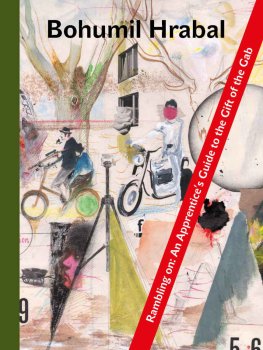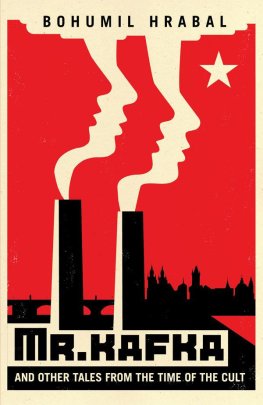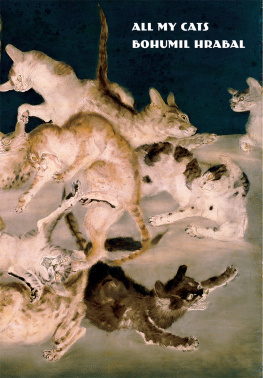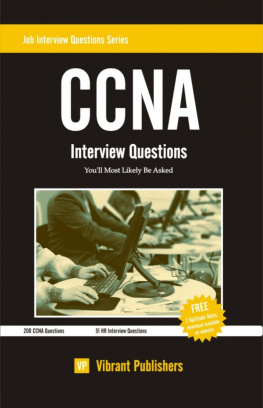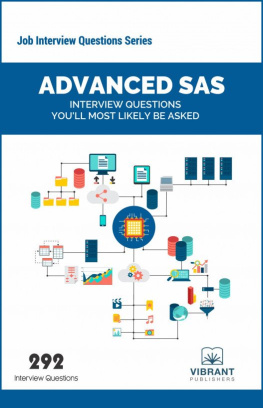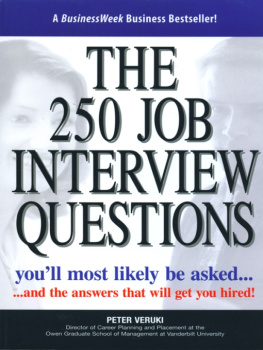Bohumil Hrabal - Pirouettes on a Postage Stamp: An Interview-Novel With Questions Asked and Answers Recorded by László Szigeti
Here you can read online Bohumil Hrabal - Pirouettes on a Postage Stamp: An Interview-Novel With Questions Asked and Answers Recorded by László Szigeti full text of the book (entire story) in english for free. Download pdf and epub, get meaning, cover and reviews about this ebook. year: 2014, publisher: Karolinum Press, Charles University, genre: Art. Description of the work, (preface) as well as reviews are available. Best literature library LitArk.com created for fans of good reading and offers a wide selection of genres:
Romance novel
Science fiction
Adventure
Detective
Science
History
Home and family
Prose
Art
Politics
Computer
Non-fiction
Religion
Business
Children
Humor
Choose a favorite category and find really read worthwhile books. Enjoy immersion in the world of imagination, feel the emotions of the characters or learn something new for yourself, make an fascinating discovery.

- Book:Pirouettes on a Postage Stamp: An Interview-Novel With Questions Asked and Answers Recorded by László Szigeti
- Author:
- Publisher:Karolinum Press, Charles University
- Genre:
- Year:2014
- Rating:5 / 5
- Favourites:Add to favourites
- Your mark:
- 100
- 1
- 2
- 3
- 4
- 5
Pirouettes on a Postage Stamp: An Interview-Novel With Questions Asked and Answers Recorded by László Szigeti: summary, description and annotation
We offer to read an annotation, description, summary or preface (depends on what the author of the book "Pirouettes on a Postage Stamp: An Interview-Novel With Questions Asked and Answers Recorded by László Szigeti" wrote himself). If you haven't found the necessary information about the book — write in the comments, we will try to find it.
Bohumil Hrabal: author's other books
Who wrote Pirouettes on a Postage Stamp: An Interview-Novel With Questions Asked and Answers Recorded by László Szigeti? Find out the surname, the name of the author of the book and a list of all author's works by series.
Pirouettes on a Postage Stamp: An Interview-Novel With Questions Asked and Answers Recorded by László Szigeti — read online for free the complete book (whole text) full work
Below is the text of the book, divided by pages. System saving the place of the last page read, allows you to conveniently read the book "Pirouettes on a Postage Stamp: An Interview-Novel With Questions Asked and Answers Recorded by László Szigeti" online for free, without having to search again every time where you left off. Put a bookmark, and you can go to the page where you finished reading at any time.
Font size:
Interval:
Bookmark:
Hrabal
that was just to avoid my souls damnation,
to which I still dont have the key. Bohumil Hrabal
Karolinum Press 2014

Published by Charles University in Prague,
Karolinum Press, 2014
www.karolinum.cz
English translation by David Short
Layout by Zdenk Ziegler
Edited by Martin Janeek
Typeset by MU studio
First English edition
Charles University in Prague, 2008
Bohumil Hrabal heirs, 2008
Lszl Szigeti, 1990
Photo Milan Jankovi, 2008
Translation David Short 1998, 2008
ISBN 978-80-246-1447-2
ISBN 978-80-246-2581-2 (pdf)
ISBN 978-80-246-2895-0 (epub)
ISBN 978-80-246-2896-7 (mobi)

Bohumil Hrabal (191497), the cat-loving, football-crazy, only semi-reconstructed beatnik, is gradually becoming familiar to the English-speaking reader, Additional momentary notoriety accompanied the appropriately bizarre manner of his death from falling out of his hospital window as he fed the pigeons.
For works previously translated see Miroslav ervenka et al. : Sebran spisy Bohumila Hrabala, vol. 19, Bibliografie, dodatky rejstky , Prague, 1997, pp. 27678.
Perhaps the best known films are Cutting it Short and Closely Watched Trains , though there have been others; some have been given an airing on British television, though well outside peak viewing times. A complete filmography is to be found in ibid. pp. 34451).
Life, including the authors own, is at the heart of all his works. Thus many contain autobiographical elements, though it is not always possible to disengage them from the imaginative overlay. The present volume is unique amongst the works of Bohumil Hrabal in being overtly (auto-)biographical and, particularly, auto-philosophical. Its uniqueness also stems from its genre (he originally called it an interview-novel; the 1996 Collected Works edition calls it merely a conversation, or dialogue).
The original sub-title applies to the first regularly published book edition (Prague: Prce, 1990). This was in fact preceded by a photocopied (samizdat) edition of thirteen copies taken from an amended typescript (Prague, 1987), of which the (deleted) sub-title had been Rozhovory do autu (approx. Conversations across the touchline, or ... out of play a football metaphor). The Collected Works sub-title is, then, a compromise return to the original one, but totally lacking the sporting allusion of either of its predecessors. The text is there not merely described as a dialogue, but is fully type-set as one, with the alternating speakers given throughout, as in a play; the names are typeset as capitals, Szigetis questions in italics. (See Sebran spisy Bohumila Hrabala , Vol. 17 [ed. V. Gardavsk, C. Poeta and V. Kadlec], Prague, 1996, pp. [5]126.)
this town is in the joint care of its inhabitants (the non-capitalisation of the first word of the title is deliberate). See my essay Bohumil Hrabal and Fun with Montage: Aspects of toto msto je ve spolen pi obyvatel , in Bohumi l H rabal (191497): Papers from a Symposium (ed. DS), London, 2004, pp. 5981.
Both the genre and the joint authorship make the present book reminiscent of Karel apeks Hovory s TGM: In this respect Pirouettes is like most of his other works: he was notorious for, indeed made a virtue or principle of, cutting and reorganising his texts several times over, a practice to which he inevitably alludes in this conversation.
See Linguistic authenticity in Karel apeks Conversations with TGM , in David Short: Essays in Czech and Slovak Language and Literature (London, 1996, pp. 3149). The opening paragraphs include due reference to the pre-history of the genre, as represented notably by Plato and Goethe. The change of the present works sub-title to dialogue or conversation is not without relevance here.
There is also a structural similarity, in the inclusion of photographs, of Masaryk and Hrabal respectively. In Pirouettes these were by Tibor Hrapka, though they are not reproduced in the present version. They were the subject of PS 2, one of three appendices to the original work; in it, Hrabal writes at length of this photographers art as being like his own, a method of observing, cutting, selecting, rejecting, and he is plainly pleased with the outcome. Amongst other things he says: Tibor Hrapka often caught me in situations where I could not match up to my own photo, and where his photographs also had an extra half-dimension because in my civilian existence I [] very much want to be as in a photograph... / For all that, Tibor Hrapka did capture me in several shots when I didnt know they were being taken, and so my mask, thanks to the alertness and artistry of the photographer, was remoulded into a human face.
See apek, ten o TGM (Prague, 1969).
Hrabal might well have found this parallel, with both apek as fellow-writer and Masaryk as the celebrity in this type of Platonic dialogue, flattering despite the ideological differences between them. apeks standing as a writer and gentleman is at least recognized in Pirouettes ; Masaryk is mentioned just once, and then not by name, and only in the apek context. It is not inconceivable that Hrabal may have aspired to the standing with the readership (if not the establishment) of his own day that apek enjoyed in his and went along with Szigetis project more willingly than his sometimes morose nature, and his avowed avoidance of fellow-writers, might suggest. His initial failure to win the approval of the (Communist) establishment for this book is apparent from the tenor of the anonymous readers comments in the appraisal rejecting it on behalf of eskoslovensk spisovatel (see the Commentary on the text in the Collected Works edition, p. 377).
Since the text nevertheless retains the character of a more or less verbatim oral record, it is occasionally awkward to translate, being full of false starts, anacolutha, and thematic and syntactic digression; the latter would be doubtless included, with pride, among the authors pirouettes on a postage stamp. The text is also very uneven in the way Hrabals oral discourse (in contrast to the more earnest Szigeti) is marked by code-switching (between an informal standard Czech and hypercolloquial forms words and grammatical forms more appropriate to Common Czech). And it is occasionally idiosyncratic in its vocabulary: no other late twentieth-century writer makes such regular use of the word ludibrionism , which will be seen to mean more than an indulgence in the ludibrious (which English dictionaries do recognise). The translation seeks to preserve as many of these characteristics as possible, so that it should still read as fairly informal, rather than having been beautified by editorial intervention. The original printed text is, however, particularly idiosyncratic in the use of punctuation and in this case I have, conversely, felt at liberty to do some minor reorganization here and there.
Hrabals language generally is quite accessible. Apart from ludibrionism , the one Hrabalesque word par excellence is pben , here left untranslated (though previous translators have used palavering ). And a slight problem attaches to the title of the book Kliky na kapesnku in the original. Kliky is a plural word referring to the bobs and weaves and tight manoeuvres that make up tackling and dribbling on the football pitch; as a plural form it carries with it the option of being used in the singular, as it occasionally is in the book. I have favoured the translation pirouette(s), since that likewise refers to a motion of the whole body, and has been deemed appropriate enough by those who remember the footwork of the Hungarian footballer who first inspired the image for Hrabal; the expression is also not unknown in English football journalism. (The postage stamp of the translation replaces the handkerchief of the original title as a more familiar English image of a confined space, and Pirouettes on a postage stamp preserves the alliteration of the original title.) The literal sense of klika as loop is, to the Czech mind, also associated with bow, or knot, hence when collocated with handkerchief it may hint at the knots traditionally tied in handkerchiefs as an aide-mmoire not inappropriate in a book consisting in the main of memoirs, though this other layer of meaning has not proved possible to conserve in the title of the translation.
Font size:
Interval:
Bookmark:
Similar books «Pirouettes on a Postage Stamp: An Interview-Novel With Questions Asked and Answers Recorded by László Szigeti»
Look at similar books to Pirouettes on a Postage Stamp: An Interview-Novel With Questions Asked and Answers Recorded by László Szigeti. We have selected literature similar in name and meaning in the hope of providing readers with more options to find new, interesting, not yet read works.
Discussion, reviews of the book Pirouettes on a Postage Stamp: An Interview-Novel With Questions Asked and Answers Recorded by László Szigeti and just readers' own opinions. Leave your comments, write what you think about the work, its meaning or the main characters. Specify what exactly you liked and what you didn't like, and why you think so.

